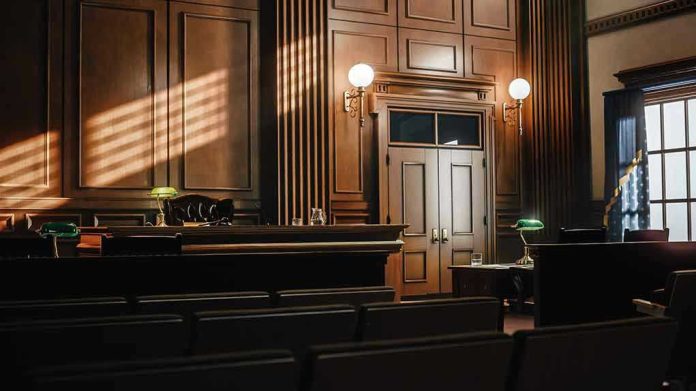
A would-be assassin who targeted President Trump is now representing himself in federal court, turning a serious criminal trial into a disturbing spectacle that exposes the failures of our justice system to protect national security.
Story Highlights
- Ryan Routh allegedly attempted to assassinate Trump at his Florida golf course in September 2024
- Prosecution presented damning evidence including surveillance footage, phone data, and a handwritten confession letter
- Routh is defending himself after firing his lawyers, planning to call only three witnesses
- Judge Aileen Cannon has restricted Routh’s defense tactics and blocked several proposed witnesses
Federal Case Against Trump Assassination Suspect
Ryan Routh faces life imprisonment for allegedly attempting to assassinate President Trump at his West Palm Beach golf course on September 15, 2024. Federal prosecutors spent seven days presenting overwhelming evidence against Routh, including surveillance footage showing him hiding in bushes with a Russian-designed SKS semi-automatic rifle. The prosecution’s case included phone data tracking Routh’s movements and testimony from Secret Service agents who apprehended him at the scene.
The most damaging evidence came in the form of a handwritten letter Routh allegedly sent to two brothers in April 2024. The letter contained a confession to the assassination attempt, along with suspicious materials including wires, pipes, and bullets. FBI agents testified about the forensic evidence linking Routh directly to the crime scene and the planning stages of this attack on our democratically elected president.
Dangerous Self-Representation Gambit
Routh dismissed his court-appointed attorneys and chose to represent himself, a risky legal strategy that legal experts warn could backfire spectacularly. His defense plan centers on calling just three witnesses: a gun expert and two character witnesses who will supposedly testify about his “gentleness, peacefulness, and nonviolent caring for humanity.” This approach ignores the mountain of physical evidence against him and demonstrates either delusion or desperation.
Trump assassination attempt suspect Ryan Routh to defend himself as prosecution rests case https://t.co/O1Ol3K6B7G
— Fox News Politics (@foxnewspolitics) September 22, 2025
Judge Aileen Cannon has already blocked several of Routh’s proposed witnesses and arguments, recognizing that his amateur legal tactics could turn the proceedings into a circus. The defendant’s decision to represent himself in such a serious federal case highlights the disconnect between his perception of reality and the gravity of attempting to murder a president and current presidential candidate.
National Security Implications
This case exposes critical vulnerabilities in protecting our political leaders from domestic terrorists who would use violence to undermine our constitutional republic. The fact that Routh was able to get within striking distance of President Trump with an assault rifle demonstrates gaps in security protocols that must be addressed immediately. The Secret Service’s response, while ultimately successful in preventing tragedy, raises questions about advance security screening at presidential events.
The prosecution’s evidence reveals Routh’s months of planning, suggesting this was not a spontaneous act but a calculated attack on American democracy itself. His ability to acquire weapons illegally and surveil presidential movements undetected represents a clear and present danger to constitutional order. The trial’s outcome will send a message about America’s commitment to protecting elected officials from political violence.
Sources:
Ryan Routh, accused of attempting to assassinate Trump on golf course, defends himself at trial
Trump assassination attempt suspect representing himself, will call gun expert












